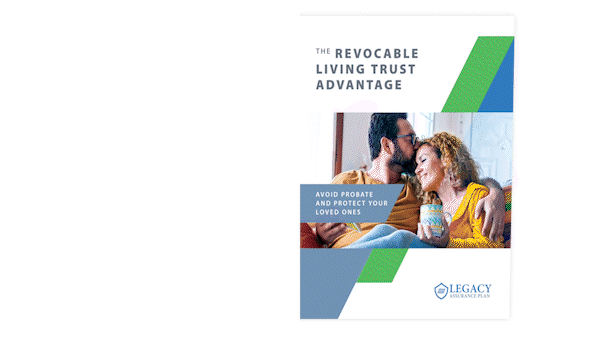Revocable living trusts have emerged as a cornerstone of modern estate planning over the past century, offering individuals and families a powerful legal tool to protect their assets and ensure a smooth transfer to their beneficiaries. At its core, the primary purpose of a revocable trust is multifaceted, addressing several key concerns in estate management.
Revocable living trusts are designed to help avoid the often lengthy and costly probate process, allowing for a more efficient transfer of assets to beneficiaries. Additionally, they provide a level of privacy that is not available with traditional wills, keeping your financial affairs out of the public record. Perhaps most importantly, revocable trusts offer unparalleled flexibility in asset management, both during the trust creator's lifetime and after their passing.
This flexibility is a key feature of revocable trusts. During their lifetime, the trust creator maintains full control over the assets, with the ability to modify or even revoke the trust as circumstances change. After the creator's passing, a designated successor trustee steps in to manage the trust on behalf of its beneficiaries, ensuring that the creator's wishes are carried out efficiently and privately.
By understanding the mechanics and benefits of these trusts, you'll be better equipped to decide if a revocable trust should be an essential component of your estate plan. We'll compare revocable trusts to other estate planning tools, discuss their advantages and limitations and provide insights into how they can be tailored to meet diverse financial and family situations. Whether you're just starting to think about estate planning or looking to refine an existing strategy, it’s important to make informed decisions about protecting your assets and legacy.
What is a revocable living trust?

A revocable living trust is a legal arrangement created during an individual's lifetime that allows them to maintain control over their assets while providing instructions for their management and distribution after death. The term "revocable" denotes that the grantor (the person creating the trust) can modify or terminate it at any time during their life, while "living" indicates that it's established and takes effect while the grantor is alive.
The structure of a revocable living trust involves three key components: the grantor, the trustee and the beneficiaries. The grantor creates and funds the trust, the trustee is responsible for managing trust assets, and the beneficiaries are those who receive benefits from the trust. In most cases, the grantor also serves as the initial trustee and primary beneficiary during their lifetime, maintaining full control over the trust's assets.
What are the main benefits of a revocable living trust?
Revocable living trusts offer several advantages that make them attractive for estate planning. Perhaps the most significant benefit is probate avoidance. Assets held in the trust bypass the often lengthy and costly probate process, potentially saving time and money for your heirs. This probate avoidance also ensures privacy protection, as unlike wills, trust documents are not public records, keeping your affairs confidential.
Another crucial advantage is the continuity of asset management. If you become incapacitated, a successor trustee can seamlessly step in to manage your assets, avoiding the need for a court-appointed guardian. The flexibility of revocable trusts is also noteworthy; you can modify or revoke the trust at any time during your lifetime, adapting it to changing circumstances or wishes.
How does a revocable living trust avoid probate?
One of the primary purposes of a revocable trust is to avoid probate, and understanding this process is crucial. When assets are transferred into a trust, they are no longer considered part of your personal estate. Instead, they belong to the trust entity. Upon your death, these assets can be distributed to beneficiaries according to the trust's terms without going through the probate process.
This probate avoidance offers several benefits. It allows for faster distribution of assets to beneficiaries, reduces legal fees and court costs, maintains privacy of estate details and minimizes the potential for disputes among heirs. However, it's important to note that only assets properly transferred into the trust avoid probate. This process, known as "funding the trust," is crucial for the trust to function as intended.
Can a revocable living trust protect assets from creditors?

While revocable trusts offer many benefits, asset protection from creditors is generally not one of them. Since the grantor retains control over the assets in a revocable trust, these assets are still considered part of their estate and can be reached by creditors. However, after the grantor's death, the trust becomes irrevocable, and the assets may then have some protection from the beneficiaries' creditors, depending on how the trust is structured.
How does a revocable living trust work after death?
Upon the grantor's death, several key changes occur with a revocable trust. First, the trust becomes irrevocable, meaning it can no longer be altered. The successor trustee, named in the trust document, takes over management of the trust assets. This individual begins the process of distributing assets to beneficiaries according to the trust's instructions.
The successor trustee's responsibilities are significant. They must notify beneficiaries of the trust's existence, manage and distribute trust assets, file necessary tax returns and close the trust once all assets have been distributed. Any assets not already in the trust may be transferred into it through a "pour-over" will, although this process may involve probate.
Do I need a revocable living trust if I'm not wealthy?
A common misconception is that revocable trusts are only necessary for wealthy individuals. However, the benefits of a revocable trust can be valuable regardless of estate size. Even if your estate isn't large enough to incur estate taxes, a revocable trust can still offer significant advantages in terms of probate avoidance and asset management.
Consider a revocable trust if you want to avoid probate and its associated costs and delays, desire privacy in your estate matters, own real estate in multiple states (which could lead to multiple probate proceedings), wish to plan for potential incapacity, or want to provide structured inheritance for beneficiaries.
How does a revocable living trust differ from a will?
While both wills and revocable trusts are estate planning tools, they function differently. A will takes effect only after death, while a trust is active once it's created and funded. Wills must go through probate, whereas properly funded trusts avoid probate. Wills become public record, but trusts remain private. Trusts can provide for asset management if you become incapacitated, but wills cannot. Many comprehensive estate plans include both a revocable trust and a pour-over will to ensure all bases are covered. The pour-over will acts as a safety net, ensuring that any assets not transferred to the trust during your lifetime will be "poured over" into the trust upon your death.
How do I set up a revocable living trust?
Setting up a revocable trust typically involves several steps. First, consult with an estate planning attorney to determine if a revocable trust is right for your situation. Then, draft the trust document, specifying trustees, beneficiaries and distribution instructions. After signing and notarizing the trust document, you'll need to fund the trust by transferring ownership of assets into the trust's name. It's also important to review and update the trust periodically or when significant life changes occur.
While it's possible to create a revocable trust using online forms or software, working with an experienced attorney can ensure that your trust is properly structured to meet your specific needs and comply with state laws.
What assets should be put in a revocable living trust?

Generally, you can transfer most types of assets into a revocable trust, including real estate, bank accounts, investment accounts, business interests and personal property such as cars, jewelry and artwork. However, some assets typically should not be placed in a revocable trust, including retirement accounts such as IRAs and 401(k)s, health savings accounts (HSAs) and life insurance policies. For these assets, you can typically designate beneficiaries instead of transferring ownership to the trust.
Can a revocable living trust help with Medicaid planning?
While revocable trusts offer many benefits, they generally do not protect assets from Medicaid spend-down requirements. Since the grantor retains control over the assets in a revocable trust, Medicaid considers these assets available for long-term care expenses. For Medicaid planning purposes, irrevocable trusts are typically more effective. However, Medicaid planning is complex and subject to strict rules and lookback periods. It's essential to consult with an elder law attorney for proper Medicaid planning strategies.
How does a revocable living trust affect taxes?

During the grantor's lifetime, a revocable trust is considered a "grantor trust" for tax purposes. This means the trust's income is reported on the grantor's personal tax return, the trust uses the grantor's Social Security number, and there are no special tax benefits or consequences for assets in the trust. After the grantor's death, the trust becomes a separate tax entity and may need to file its own tax returns.
For estate tax purposes, assets in a revocable trust are still considered part of the grantor's estate. However, for married couples, certain types of revocable trusts (such as AB trusts or credit shelter trusts) can be used to maximize estate tax exemptions.
Is a revocable living trust right for you?
The primary purpose of a revocable trust is to provide a flexible, private and efficient means of managing and distributing your assets both during your lifetime and after your death. While revocable trusts offer numerous benefits, including probate avoidance and incapacity planning, they may not be necessary or appropriate for everyone.
Consider a revocable trust if you want to avoid probate and its associated costs and delays, desire privacy in your estate matters, own property in multiple states, wish to plan for potential incapacity or want to provide structured inheritance for beneficiaries. However, keep in mind that revocable trusts require proper setup and funding to be effective. They also don't provide asset protection from creditors or help with Medicaid planning.
Ultimately, the decision to establish a revocable trust should be made in consultation with an experienced estate planning attorney who can assess your specific situation and goals. By carefully considering your options and creating a comprehensive estate plan, you can ensure that your assets are managed and distributed according to your wishes, providing peace of mind for you and your loved ones.



